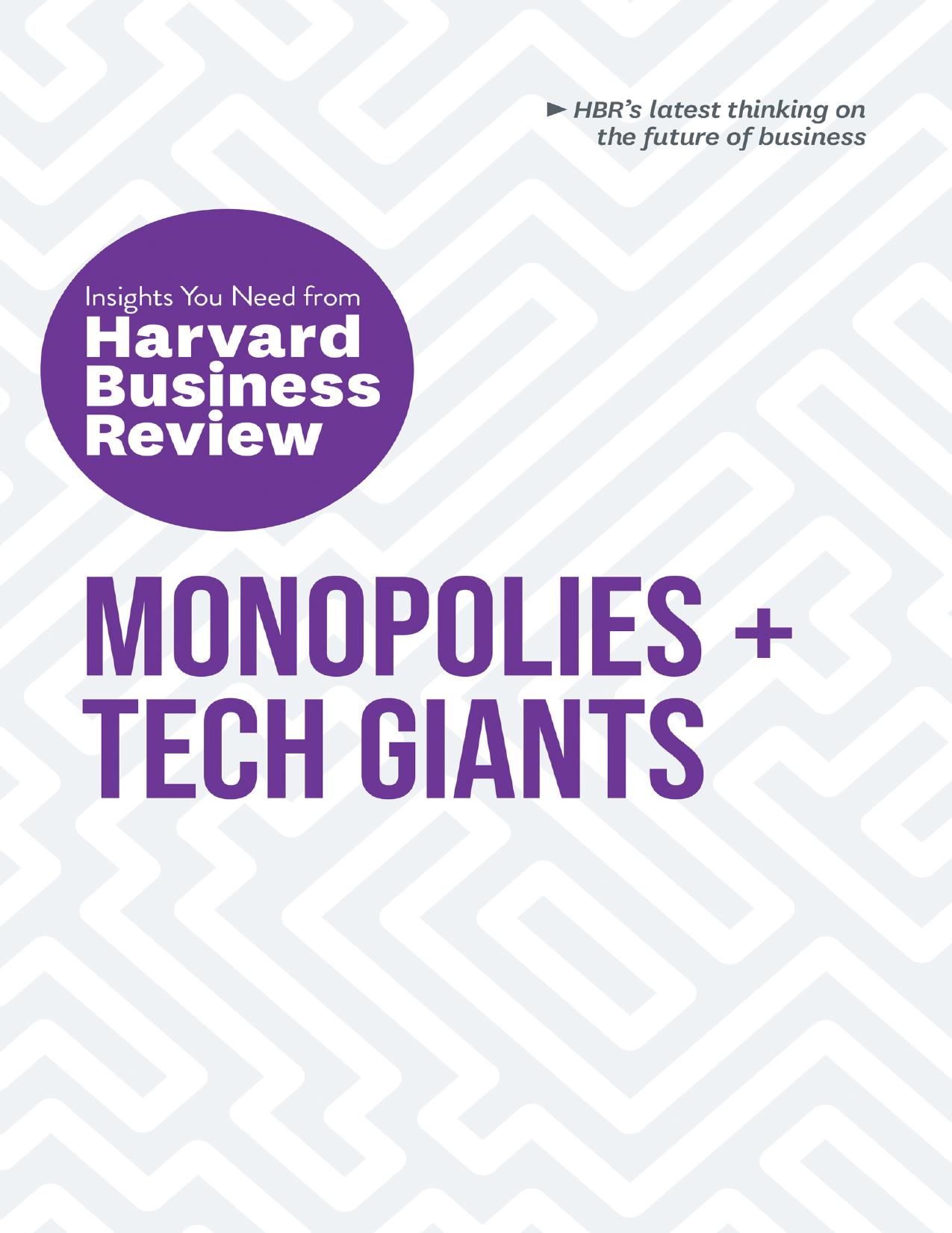Monopolies and Tech Giants by Harvard Business Review

Author:Harvard Business Review
Language: eng
Format: epub, pdf
Publisher: Harvard Business Review Press
Published: 2020-04-21T00:00:00+00:00
NOTE
1. William A. Galston and Clara Hendrickson, “A Policy at Peace with Itself: Antitrust Remedies for Our Concentrated, Uncompetitive Economy,” Brookings Institute, January 5, 2018, https://www.brookings.edu/research/a-policy-at-peace-with-itself-antitrust-remedies-for-our-concentrated-uncompetitive-economy/.
Adapted from content posted on hbr.org, January 9, 2019 (product #H043T0).
5
DON’T BREAK UP FACEBOOK—TREAT IT LIKE A UTILITY
by Dipayan Ghosh
Recently Facebook cofounder Chris Hughes joined a chorus of voices (including presidential hopeful Elizabeth Warren, Texas senator Ted Cruz, and former Secretary of Labor Robert Reich) arguing that regulatory agencies should apply antitrust authority to or even “break up” the digital giant.1 Hughes positioned the move as a necessity to subvert the more insidious effects we have seen arise from Facebook and similar platforms, such as the spread of disinformation and hate speech. His argument drew a great deal of popular support from the broad public as well as sharp criticism from the competition policy establishment. The company itself also pushed back, with newly minted public policy executive Nick Clegg penning a comeback arguing that breaking up Facebook would only serve to punish an innovative company that has created tremendous economic value.2
Critically, though, breaking up the company is not the only way to temper its destructive effects. I suggest an even more radical approach: I contend that Facebook and firms like it have become natural monopolies that necessitate a novel, stringent set of regulations to obstruct their capitalistic overreaches and protect the public against ingrained economic exploitation. While this option does not exclude the possibility of also pursuing a policy of breakup, I believe it is the more important objective and must take precedence. To understand why, we can apply rules of thumb from traditional competition and antitrust policy analysis, in which policy makers consider the economic dynamics of the industry in a stepwise manner.
The first step is to consider whether the industry in which the company operates is “competitive.” To do so, the Justice Department’s antitrust division and the Federal Trade Commission typically consider the relative market share of the firm in question. (Which agency actually makes the determination depends on the particular circumstance.) There is no explicit threshold for how much market share a company can have before it is considered a monopoly, though the FTC typically does not scrutinize a company for monopoly power if it occupies less than 50% of a market, while the lowest-ever market share determined to result in monopoly power by the European Commission was 39.7%. If the market appears competitive, you typically leave it alone; if it isn’t (as, I would argue, is the case for the leading Silicon Valley digital giants), then you move to the next step of analysis.
Let’s apply this to Facebook. The company’s industry can be hard to define because the company’s holdings and technological features change so quickly, as does the overall sector; the same can be said of the other large consumer internet firms. Given Facebook’s many platforms—including Messenger, WhatsApp, Instagram, and the big blue app—the firm covers social media, photo sharing, and messaging, among other industries. Given this, I contend that, in the United States, Facebook has a dominating presence in each of its consumer areas of activity.
Download
Monopolies and Tech Giants by Harvard Business Review.pdf
This site does not store any files on its server. We only index and link to content provided by other sites. Please contact the content providers to delete copyright contents if any and email us, we'll remove relevant links or contents immediately.
Rich Dad Poor Dad by Robert T. Kiyosaki(6632)
Bad Blood by John Carreyrou(6621)
Principles: Life and Work by Ray Dalio(6446)
Playing to Win_ How Strategy Really Works by A.G. Lafley & Roger L. Martin(6301)
Management Strategies for the Cloud Revolution: How Cloud Computing Is Transforming Business and Why You Can't Afford to Be Left Behind by Charles Babcock(4572)
The Confidence Code by Katty Kay(4260)
Thinking in Bets by Annie Duke(4226)
American Kingpin by Nick Bilton(3886)
Delivering Happiness by Tony Hsieh(3425)
Project Animal Farm: An Accidental Journey into the Secret World of Farming and the Truth About Our Food by Sonia Faruqi(3221)
The Power of Habit by Charles Duhigg(3139)
The Tyranny of Metrics by Jerry Z. Muller(3072)
The Marketing Plan Handbook: Develop Big-Picture Marketing Plans for Pennies on the Dollar by Robert W. Bly(3062)
Brotopia by Emily Chang(3053)
Mastering Bitcoin: Programming the Open Blockchain by Andreas M. Antonopoulos(3042)
I Live in the Future & Here's How It Works by Nick Bilton(2997)
The Content Trap by Bharat Anand(2924)
Building a StoryBrand by Donald Miller(2912)
Applied Empathy by Michael Ventura(2902)
